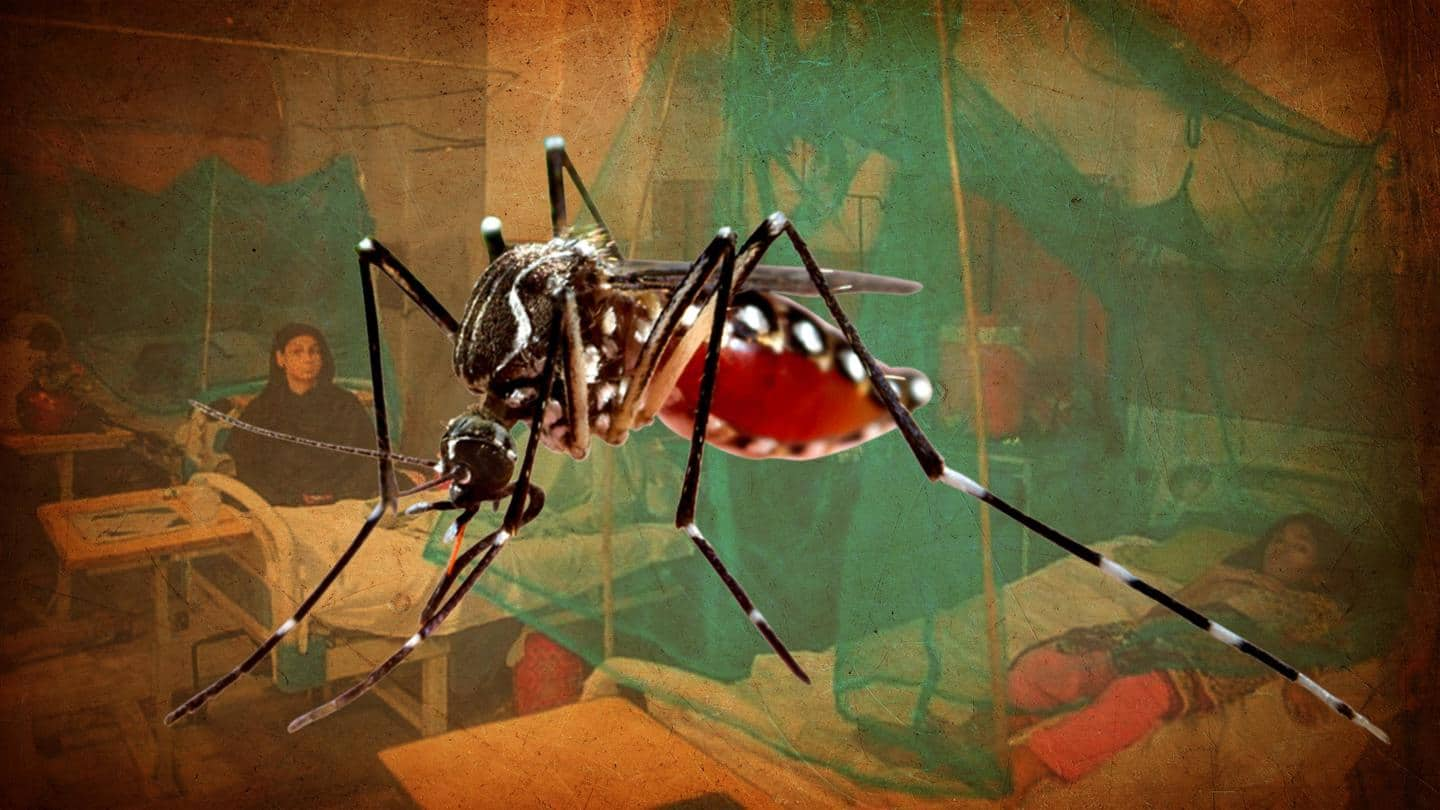Raging malaria: Flood-ridden Pakistan mulls importing mosquito nets from India
What's the story
While Pakistan stands inundated due to severe floods, stagnant water has caused a malaria breakout as authorities are battling a lack of infrastructure.
Pakistan's health ministry officials have sought permission from the government to import 71 lakh mosquito nets from India.
Around two lakh people have been infected with malaria in Sindh and Balochistan province in the last two months, according to reports.
Context
Why does this story matter?
Catastrophic floods hit Pakistan with one-third of the country submerged earlier this month.
The floods claimed over 1,500 lives, while over five lakh were displaced, and over three crore people were affected in total.
Relief and rescue operations were underway as the country has suffered heavy damage, which initial estimates marked around $10 billion.
Pakistan had appealed to the international community for assistance.
Twitter Post
26 districts of Sindh, Balochistan are the worst affected
#BreakingNews : After the spread of malaria in #Pakistan, the Ministry of Health asked the government of Pakistan for permission to buy mosquito nets from #India. There is an urgent need for 71 lakh mosquito nets in 26 districts of Pakistan. #FloodsInPakistan 2-1 pic.twitter.com/Ri0fRWcSl4
— Ghulam Abbas Shah (@ghulamabbasshah) September 21, 2022
Gobal Fund
NHS waiting for Ministry of Commerce's approval
The Global Fund — a major donor to Pakistan's National Malaria Control Program — offered funds for procuring mosquito nets from India urgently.
Following this, the National Health Services, Regulations and Coordination (NHS, R&C) wrote to the Ministry of Commerce seeking permission for the same.
Once the ministry gives a go-ahead, the Global Fund will release the endowment.
Details
Floodwaters could take 2 to 6 months to recede
Malaria and other diseases killed over 324 people in the flood-ravaged districts till Wednesday, according to Reuters.
Except for malaria, stagnant flood waters spread across hundreds of kilometers have given rise to many water-borne and vector-borne diseases, eye and skin infections, diarrhea, typhoid, and dengue fever among others.
The flood waters could take two to six months to recede.
Facts
Situation worsening due to lack of testing kits
Hundreds of cases of Plasmodium falciparum — the deadliest type of malaria — are being reported daily, which constitute 22% of the total number of malaria cases.
Around 26 districts of Sindh, Balochistan and Punjab provinces are the worst-hit and in dire need of malaria testing kits and anti-malarial drug.
The problem of malaria is compounded due to a lack of malaria testing kits.
Twitter Post
Situation grim as Sindh reports 3,500 malaria cases a day
The death toll from malaria and other water-borne diseases rises in flood-ravaged regions of Pakistan, as officials appeal for more malaria medicines https://t.co/68MrUG7RxA pic.twitter.com/ttZ7Jaq54V
— Reuters (@Reuters) September 22, 2022
Trade relations
Pakistan reportedly refused relief aid from India, Bangladesh
Pakistan had dialed down its trade relations with India in August 2019 after Article 370 — which granted a special status to Jammu and Kashmir — was scrapped.
Despite its request for international support, Pakistan had refused aid from India and Bangladesh saying that it would tarnish Pakistan's global image.
Officials said if necessary help doesn't arrive, the situation could spiral out of control.
